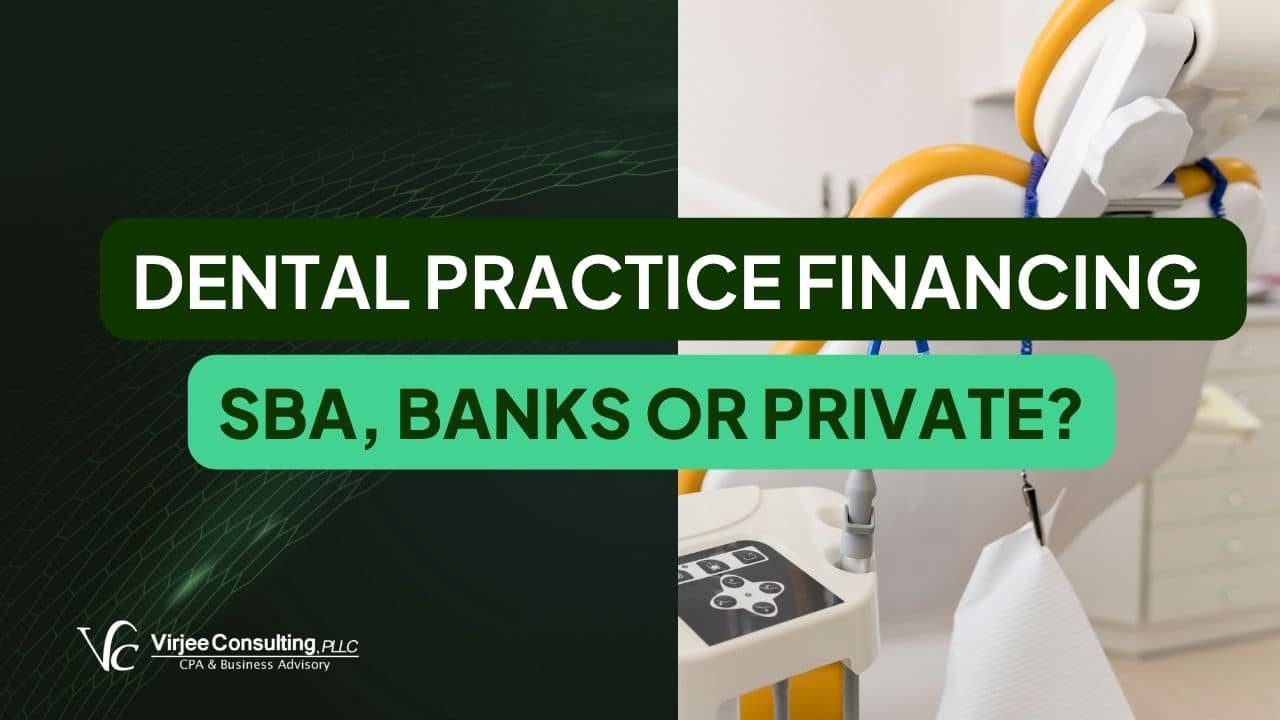Whether you’re buying your first practice, opening a second location, or renovating your office, understanding Dental Practice Financing matters just as much as what you buy. The right loan can free up cash flow and help you grow at a sustainable pace. But the wrong one can leave you feeling stretched from day one.
There are three main paths most dentists consider when it comes to dental practice financing: Small Business Administration (SBA) loans, traditional bank loans, and private financing. Each one has its pros and cons, and the best choice depends on your goals, your timeline, and the state of your finances.
Let’s walk through how each option works and when it might make sense for your practice.
Understanding SBA Loans
For many dentists, SBA loans are the most attractive option. When exploring Dental Practice Financing, these government-backed loans from the Small Business Administration help banks lend to small businesses with lower risk. As a portion of the loan is guaranteed by the government, lenders can offer better terms, such as longer repayment periods and smaller down payments.
An SBA loan can be especially useful if you’re just starting out or don’t have a long track record of business ownership yet. When considering Dental Practice Financing, the SBA 7(a) loan is the most common type and can be used for nearly anything: buying an existing practice, covering goodwill, purchasing equipment, or even funding working capital and renovations. There’s also the SBA 504 program, which is great for purchasing real estate or major fixed assets because it offers longer repayment terms (sometimes up to 25 years) and lower rates than a typical bank loan.
Better terms come with tradeoffs. SBA loans can take longer to process and come with a fair amount of paperwork. You’ll need to provide detailed financials, projections, and personal guarantees. It’s not unusual for the process to take a few months from start to finish, so they’re best suited for planned acquisitions.
If you have time on your side and want lower monthly payments, an SBA loan can be a great fit. When exploring Dental Practice Financing, just be sure to work with a lender experienced in dental practices so they’ll know how to structure the deal and navigate the paperwork efficiently.
When a Conventional Bank Loan Makes More Sense
If you have strong credit and your practice’s financials are solid, a conventional bank loan might be the simpler route. These loans come directly from a bank without SBA backing, so there’s less red tape and usually a faster approval process.
Conventional loans tend to work well when you’re expanding an existing practice, purchasing equipment, or taking on a smaller acquisition that doesn’t require special program guidelines. When considering Dental Practice Financing, many banks now have healthcare or dental divisions that understand the industry and can tailor repayment terms around your cash flow cycles.
The biggest difference you’ll notice compared to SBA loans is the down payment. Banks generally require more money up front and offer shorter repayment terms, so your monthly payments will be higher. When evaluating Dental Practice Financing, a conventional bank loan can be a straightforward option that gets you funded faster, helping you avoid some of the SBA fees and restrictions if your financial position is strong and you value simplicity. For dentists looking to streamline operations and boost efficiency, check out Best AI Tools For Dentists We’ve Seen (2025).
When to Explore Private Loans
Then there are situations where neither SBA nor bank financing fits neatly, like when you need to move quickly on a deal, your credit profile is still recovering, or the purchase structure is too unconventional for a traditional lender. In those cases, private loans can fill the gap.
Private loans simply mean borrowing from a non-bank source, which could be an investor, a specialty healthcare lender or even the seller of the practice you’re buying. These loans tend to be more flexible and faster to close, but they often come with higher interest rates or shorter terms.
You might use private financing as a temporary bridge loan while waiting for longer-term financing to finalize, or as a supplement when your bank won’t cover 100% of the purchase price. When exploring Dental Practice Financing, some dentists also structure part of their deal with seller financing, where the seller agrees to finance a portion of the sale over time. This can help reduce your upfront cash requirement and make the deal more attractive for both sides.
The key with private loans is to go in with eyes wide open. They can be valuable tools when used strategically, but they’re rarely meant to be long-term solutions.
Choosing What’s Right For You
Each financing path has its place, and the best choice depends on your situation. The most important thing is to understand how each loan impacts your cash flow and long-term plans.
It’s wise to look beyond just the interest rate and consider the total repayment period, fees, and how the debt fits into your bigger financial picture. A financing structure that looks good on paper could feel tight in practice if your collections dip or insurance reimbursements slow down.
That’s why it helps to run the numbers with your accountant before you sign anything. When planning Dental Practice Financing, your accountant can help you model different scenarios, like what your payments would look like under each loan type and how it affects your tax position. You should also evaluate how much of a buffer you’ll have left after overhead and debt service.
Get The Right Dental Practice Financing Advice
At Virjee Consulting, we help dentists nationwide to plan and structure their practice finances with clarity. From tax planning to acquisition support, we can help you choose the financing path that fits your goals and keeps your practice financially healthy.
If you’re thinking about buying a dental practice or refinancing, reach out to us today.
We’ll walk you through the numbers, explain your options, and help you make a decision that feels right for you.

